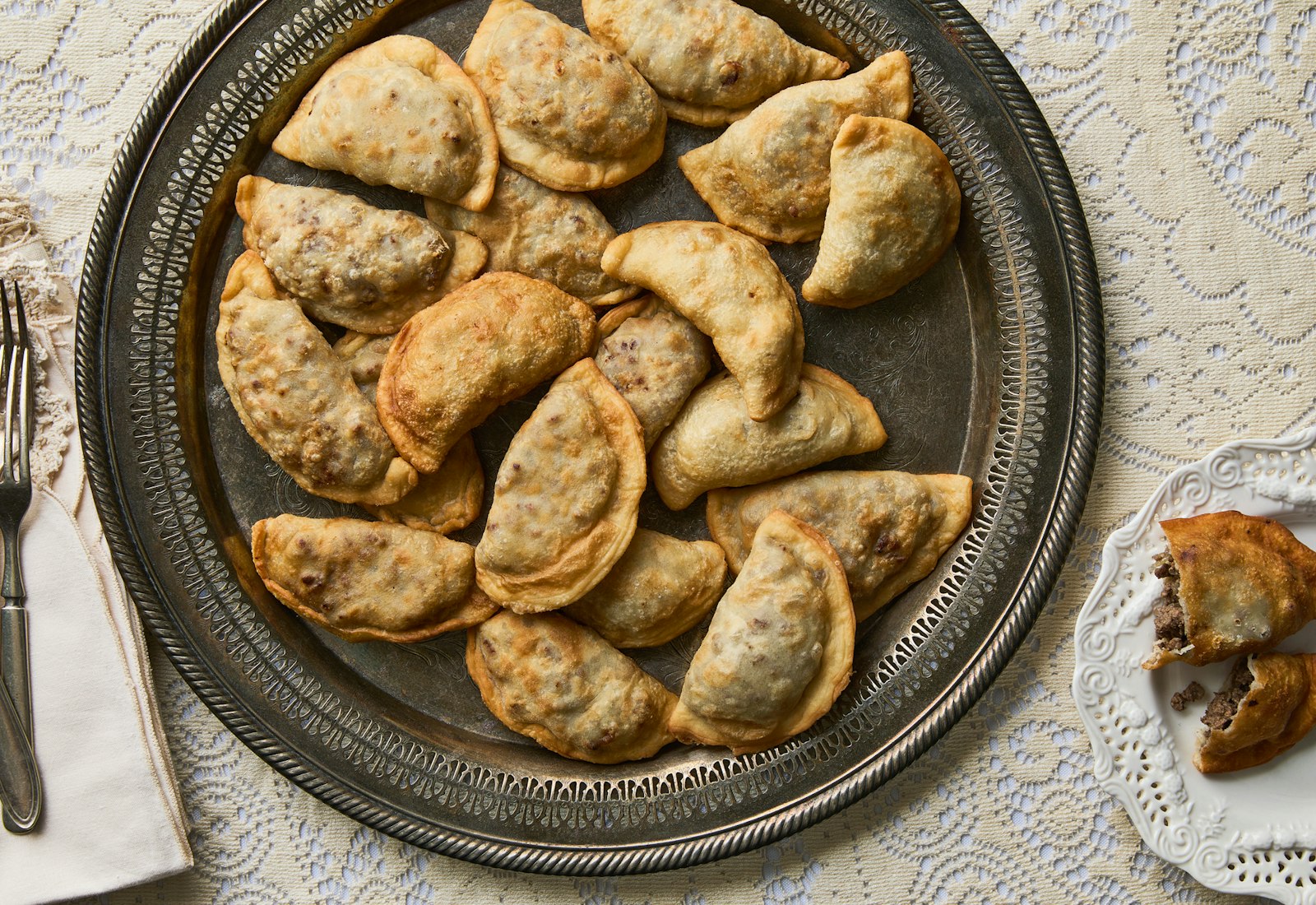Shared by Sylvia Fallas


In Brooklyn’s Syrian Jewish community, Simchat Torah is all about the kids. At Sylvia Fallas’s synagogue, the morning services — where the last line of the Torah is read and the scroll is rewound to the beginning — start later, so families can attend together. The kids’ service is so large, it takes over the main sanctuary. And every child receives a “swag bag,” as Sylvia calls it, of candy and treats like toys or fun socks.
After services, her family makes their way to her grandmother Sylvia Azar’s home and the kids run up to the attic to trade one another for their favorite candies. “It’s enough candy to send you to the dentist,” she says. “We do not celebrate Halloween, so this is a really big deal.”
The adults crowd the kitchen for their own treat: freshly-fried sambusak, still hot from the oil. It’s the only time of year that Sylvia’s grandmother makes them — and they are devoured so quickly, they never make it to the table. Even the cousins who live down the street, who have their own lunch at home, will stop in to wish everyone a “chag sameach” and sneak a sambusak. “It’s a constant parade of people,” Sylvia says.
Cooking note: Uncooked sambousak can be stored in an airtight container in the freezer for up to a few weeks. You can fry them directly from the freezer.
Learn more about Sylvia’s family in “For This Syrian Family, Friday Afternoon Means Coffee and Pastries” and get her recipe for salajhan (Syrian beef kebabs).
Prepare the filling (tedbileh): Heat 2 tablespoons of neutral oil in a deep pot. Add onions and cook over medium heat until golden, 7–10 minutes. Season with salt.
Increase the heat to high, add the meat, and break it into little pieces with a fork. Aim for a fine and soft texture, if the pieces are too big they will tear the delicate dough.
When the meat is fully cooked, season with ground allspice and cinnamon. Taste and adjust salt. Transfer the meat to a strainer and set aside to cool.
Prepare the dough: In a bowl, combine flour, oil, salt, and water. Mix by hand until a dough forms.
Transfer to a clean work surface and knead until smooth and elastic,10–15 minutes. If sticky, add a tablespoon of flour.
Return dough to the bowl, cover with plastic wrap, and refrigerate for at least 30 minutes and no more than one hour.
Fill the sambousak: Roll dough on a floured surface into a rectangle about 18×15 inches and ⅛-inch thick.
Cut out circles with a 4-inch cookie cutter. Gather the dough scraps and set them aside, covered in plastic wrap.
Place 1½–2 tablespoons of filling in each circle. Fold into a half-moon shape, leaving a ½-inch border. Press edges to seal. Arrange the sambousak on a parchment-lined tray, leaving a small space between them so they don’t stick to one another.
Continue with the dough scraps: roll them out, fill, and repeat until all the filling is used.
Wrap the tray of sambousak in plastic and freeze for at least 5 hours, or overnight, until firm. For longer storage, transfer the frozen sambousak to an airtight container or zip-top bag.
Fry the sambousak: Heat oil in a deep pot until the surface shimmers but does not smoke. To check if the oil is hot enough, insert the end of a wooden spoon into the oil — if it bubbles gently around the wood, the oil is ready. If it bubbles vigorously, it's too hot. If using a thermometer, aim for 365–375°F. Fry the sambousak from frozen in small batches, a few minutes per side, until golden brown. Do not overcrowd the pot and keep the sambousak separated to prevent sticking.
Transfer to a metal strainer to drain excess oil. Serve immediately.